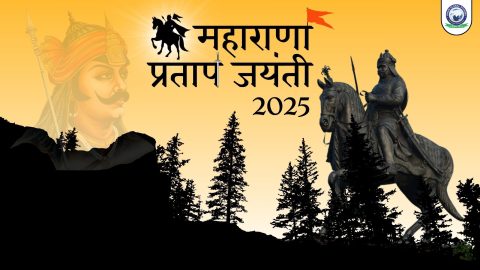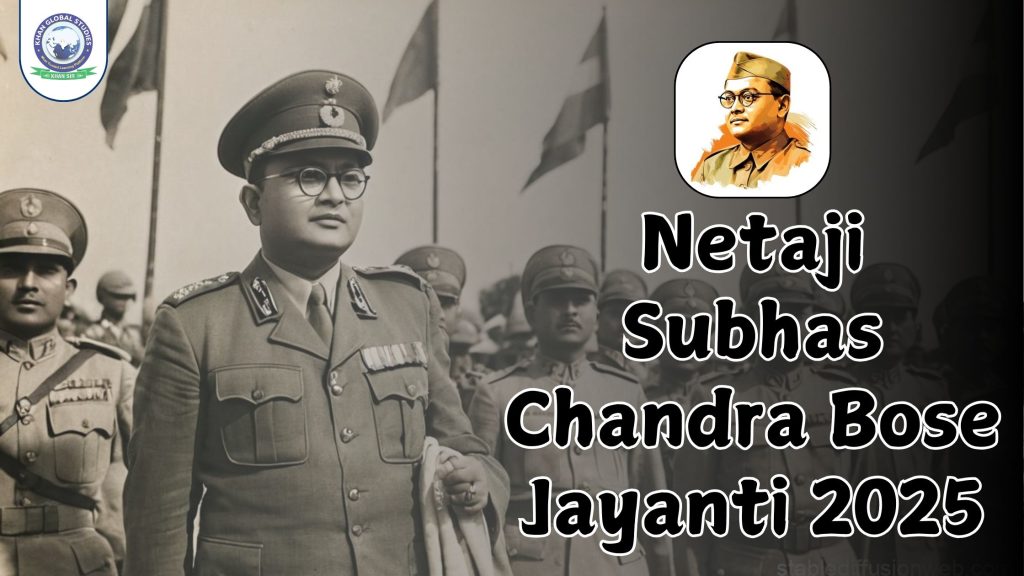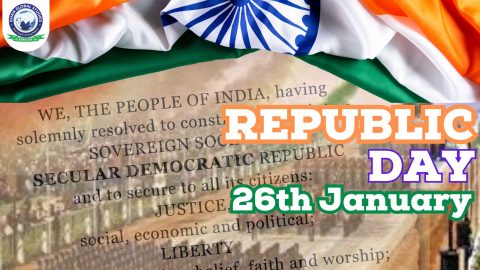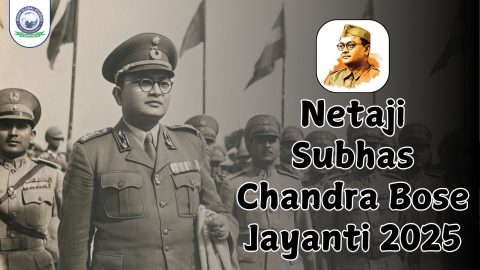Netaji Subhas Chandra Bose Jayanti, observed every year on January 23, commemorates the birth anniversary of Subhas Chandra Bose, one of India’s most revered freedom fighters. The day not only celebrates his contribution to India’s freedom struggle but also reminds us of his indomitable spirit and vision for a free India. In 2025, the country will once again unite to honour the man whose life and legacy will continue to inspire generations.
Early Life and Education of Subhas Chandra Bose
Born in Cuttack, Odisha in 1897, Subhas Chandra Bose showed exceptional talent from a young age. His academic journey began at Ravenshaw Collegiate School and later at Presidency College in Calcutta, where his patriotic fervour first surfaced. Despite facing expulsion due to his activism, Bose persevered and completed his education at the Scottish Church College. His quest for knowledge took him to the University of Cambridge, where he prepared for the prestigious Indian Civil Services (ICS) examination.
Bose’s Role in the Indian Freedom Movement
On his return to India, Bose resigned from the ICS, driven by a desire to contribute directly to the freedom struggle. His charismatic leadership and vision brought a new dynamism to the Indian National Congress (INC), where he was elected president twice. However, ideological differences with Mahatma Gandhi and other senior leaders forced him to resign.
Bose’s unwavering belief in armed struggle as a means to achieve independence led him to form the Forward Bloc and later the Indian National Army (INA). His famous call to arms, “You give me blood, and I will give you freedom”, is etched in the pages of Indian history.
Formation and Achievements of Azad Hind Fauj
Bose’s visit to Germany and then Japan began a new chapter in the Indian freedom struggle. With Japanese support, he reconstituted the INA, which comprised Indian soldiers and expatriates. Though not entirely successful, the INA’s campaigns, especially the battles of Imphal and Kohima, galvanised the Indian masses and shook the foundations of British colonial rule.
Netaji’s Vision for an Independent India
Subhash Chandra Bose envisioned an India that was not only free from British rule, but also economically self-reliant and socially egalitarian. His ideas on industrialisation, women’s empowerment and secularism were way ahead of his time. He believed that there should be an India where all religions co-existed harmoniously.
Mysterious Disappearance and Legacy
The circumstances surrounding Bose’s disappearance in 1945 continue to fascinate historians and enthusiasts alike. While it is widely believed that he died in a plane crash in Taiwan, several theories suggest the contrary. Despite the mysteries, Bose’s legacy as a patriot and revolutionary cannot be challenged.
Significance of Netaji Subhas Chandra Bose Jayanti
Netaji Subhas Chandra Bose Jayanti commemorates the sacrifices made by Bose and countless others in India’s pursuit of independence. Schools, colleges and various organizations celebrate the day with patriotic songs, essay competitions and cultural programs. Special events are held at Netaji Bhavan in Kolkata and other important places associated with his life.
Government Initiatives and Honors
In recent years, the Government of India has taken several steps to honour Bose’s memory. Renaming prominent landmarks, releasing commemorative coins and including Bose’s life story in educational curriculums are testimony to his lasting impact. The Netaji Subhas Chandra Bose Museum in New Delhi is a tribute to his life and contributions.
Conclusion
As we approach Netaji Subhas Chandra Bose Jayanti 2025, it is important to reflect on Bose’s values and ideals. His life epitomizes courage, resilience and unwavering commitment to the country. Let us honour his memory by upholding the principles of justice, equality and patriotism in our daily lives.
Frequently Asked Questions
Q: Who was Subhas Chandra Bose?
Answer: Subhas Chandra Bose was a prominent leader in the Indian independence movement, known for his role in the formation of the Indian National Army (INA) and his advocacy of armed struggle against British colonial rule.
Q: Why is 23rd January celebrated as Netaji Subhas Chandra Bose Jayanti?
Answer: Subhas Chandra Bose’s birth anniversary is celebrated on 23rd January, commemorating his contribution to India’s freedom struggle.
Q: What was the major contribution of Subhas Chandra Bose to India’s independence?
Answer: Bose is known for his leadership in the Indian National Congress, the formation of the INA, and his efforts to garner international support for India’s independence.
Q: What is the significance of the Indian National Army (INA)?
Answer: The INA under Bose’s leadership played a key role in inspiring Indian soldiers and the masses by demonstrating a determined effort to overthrow British rule through military means.
Q: Which slogan was coined by Subhas Chandra Bose?
Answer: One of Bose’s most famous slogans was “Give me blood, and I will give you freedom.”
Q: What were the ideological differences between Subhas Chandra Bose and Mahatma Gandhi?
Answer: Bose believed in armed struggle and a more aggressive approach to achieving independence, while Gandhi advocated non-violent resistance.
Q: Where did Subhas Chandra Bose form the Provisional Government of Free India?
Answer: Bose formed the Provisional Government of Free India in Singapore in 1943.
Q: What role did the battles of Imphal and Kohima play in the INA’s campaign?
Answer: The battles of Imphal and Kohima were important battles during World War II where the INA, along with the Japanese army, attempted to invade British India but were defeated.
Q: What are the theories about Subhas Chandra Bose’s disappearance?
Answer: While it is widely believed that he died in a plane crash in 1945, alternative theories suggest that he survived and was living in hiding.
Q: How does India remember Netaji Subhas Chandra Bose today?
Answer: India honours Bose through various commemorations, including renaming historical sites, issuing commemorative coins, and educational programmes highlighting his contributions.
a





